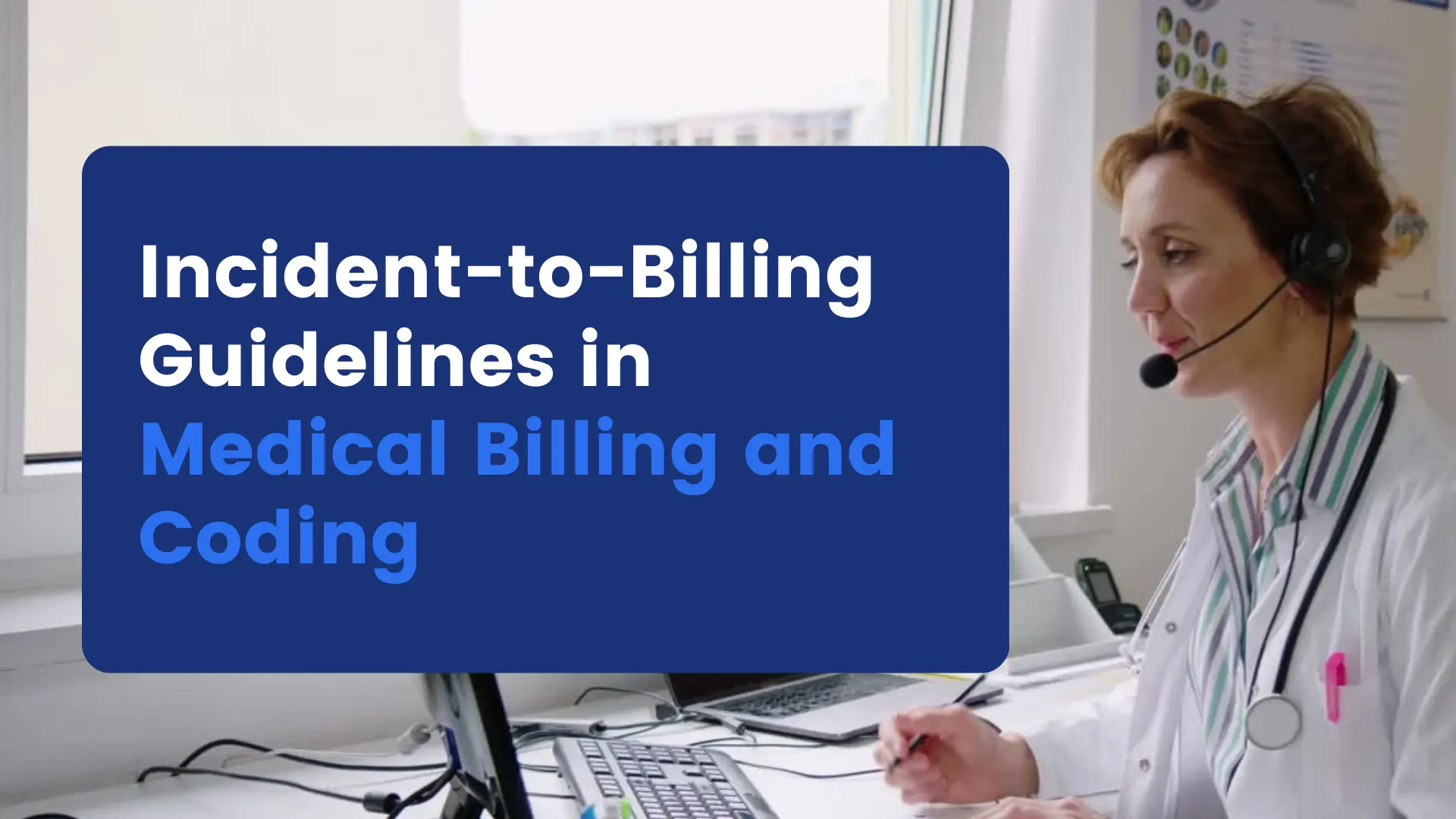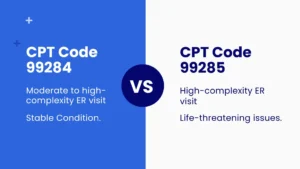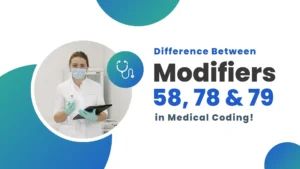Understanding incident-to-billing is important for anyone involved in medical billing and coding services. It is considered a complex process because physicians and non-physicians provide different services. This special type of medical billing process allows non-physician healthcare providers, such as nurse practitioners and physician assistants, to provide care. Then, they must be billed for their services under a supervising physician’s name. Incident-to-billing guidelines in medical billing and coding will give you specific criteria that must be met for the bill to be valid. In this blog post, we’ll break down the basics of incident-to-billing, explain the guidelines you need to follow, and highlight why it’s important for medical practices.
What is an Incident-to-Billing in Medical Billing and Coding?
Incident-to-billing is a process that allows non-physician practitioners (NPPs) to provide follow-up care under a supervising physician’s guidance. These services can then be billed using the doctor’s National Provider Identifier (NPI) number, which leads to a higher Medicare reimbursement rate.
Training the team on incident-to-billing is crucial for the best medical billing company. It ensures that they practice bills correctly and follow the rules. This knowledge helps avoid audits, legal issues, or fines. By following incident-to guidelines, follow-up services by an NPP can be billed at 100% of the physician’s fee schedule instead of the 85% rate when NPPs bill using their own NPI.
What are the Rules for Incident-to Billing in Medical Billing and Coding?
Rule #1:
The first important rule for incident-to-billing is that it only applies to professional services covered by Medicare. Other types of services are not included because Medicare doesn’t allow NPPs to deliver those services. This can consist of certain services like diagnostic tests. It’s important to know which services are covered by Medicare so that patients understand what they can be billed for at a particular facility or hospital.
Rule #2:
The second rule of incident-to-billing in medical billing and coding is that the service must happen in a non-institutional setting. Medicare has listed these places in its manual to avoid confusion. Generally, these are places other than hospitals and nursing facilities. The manual also states that partial hospitalization services can be fully reimbursed if they are provided in non-institutional settings.
Rule #3:
The doctor must start the patient’s care. If the patient has a severe issue that the non-physician practitioner (NPP) can’t handle, the doctor must see the patient first, make the diagnosis, and create a treatment plan. This means the NPP can’t handle the patient’s first visit. The doctor also needs to decide if the treatment plan needs to change in the future.
Rule #4:
After the doctor has made the initial diagnosis and treatment plan, the NPP can take over follow-up care. During this process, the doctor doesn’t need to be in the room while the NPP sees the patient but must be in the office to help if needed. This means the doctor must be nearby to supervise the NPP when they are providing care.
Rule #5:
The doctor must stay involved in the patient’s treatment. State rules say that doctors must supervise NPPs, and this includes checking on the patient at least every third visit. The doctor’s ongoing involvement helps ensure the patient’s care is managed correctly, allowing the practice to receive full reimbursement for services.
Rule #6:
The supervising physician and the non-physician practitioner (NPP) providing the incident-to-service must be employed by the same entity billing for the service. If the physician works alone, they must employ the NPP themselves. This means the physician and the NPP must work together under the same employer to care for patients.
Rule #7:
The incident-to-service must be something that is usually done in an office setting and part of the regular treatment for a diagnosis or illness. Incident-to-billing in medical billing and coding cannot be used for services performed outside of the office setting.
These rules are part of the Medicare Benefit Policy Manual’s criteria for incident-to-billing. They show how incident-to-billing in medical billing and coding works in medical services, charging the full fee even if a non-physician provides the service. Patients should be aware of their rights and the actual costs involved. Understanding incident-to-billing helps both patients and physicians make informed decisions about medical billing.
What are the Benefits of Incident-to Billing in Medical Billing and Coding?
Incident-to-billing offers several benefits to healthcare providers:
1- Increased Revenue
Medical Billing services provided by non-physician care workers under a physician’s name and care often result in higher reimbursement rates from payers, boosting practice revenue.
2- Improved Patient Access
Non-physician healthcare professionals, like nurse practitioners and physician assistants, can be more significant in patient care and enhance patients’ access to healthcare services.
3- Efficient Resource Utilization
Utilizing the skills of non-physician providers allows physicians to concentrate on more complex cases, leading to more efficient resource use within the practice.
Conclusion
Understanding and correctly implementing incident-to-billing in medical billing and coding can significantly benefit your medical practice. Furthermore, proper training and adherence to the guidelines are essential to ensure compliance and avoid potential audits or fines. By following the incident-to-billing rules, non-physician practitioners can play a vital role in patient care while the practice maximizes reimbursement rates. With the proper knowledge and practices in place, incident-to-billing in medical billing can be a powerful tool for enhancing the efficiency and effectiveness of your healthcare services.
Read more about Medical Billing Services in Massachusetts.




